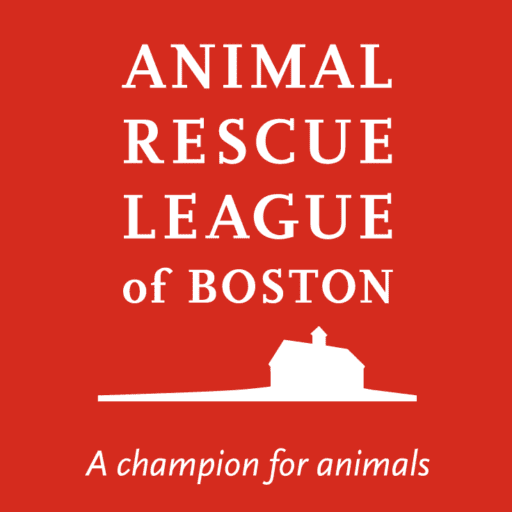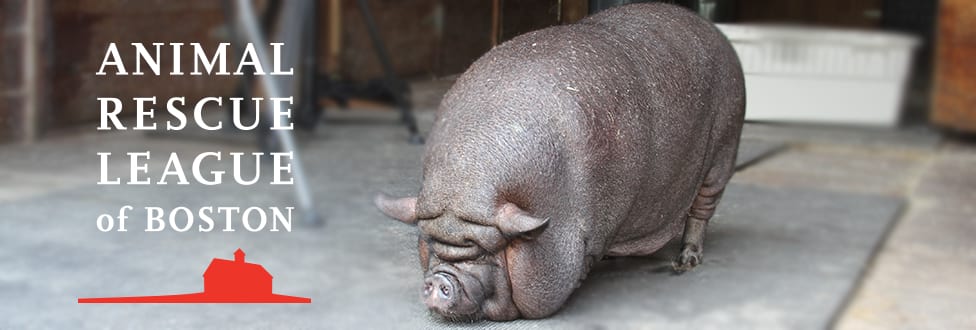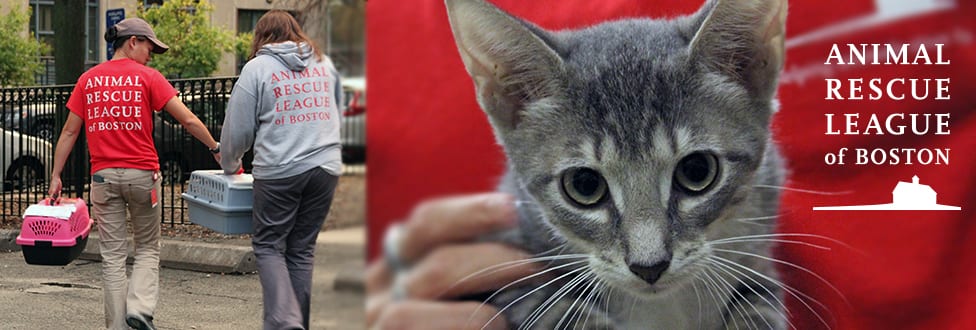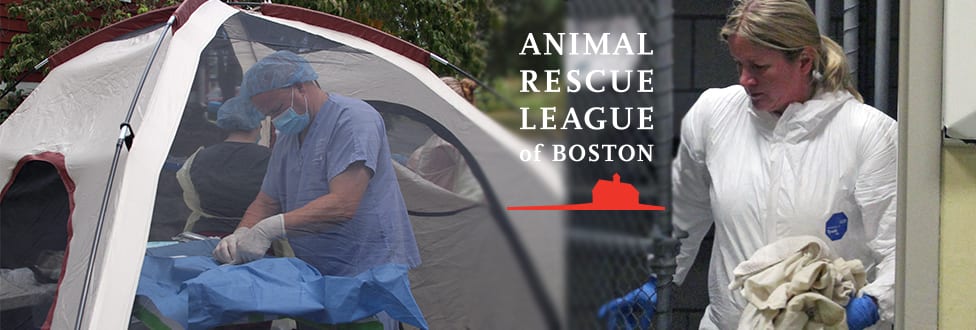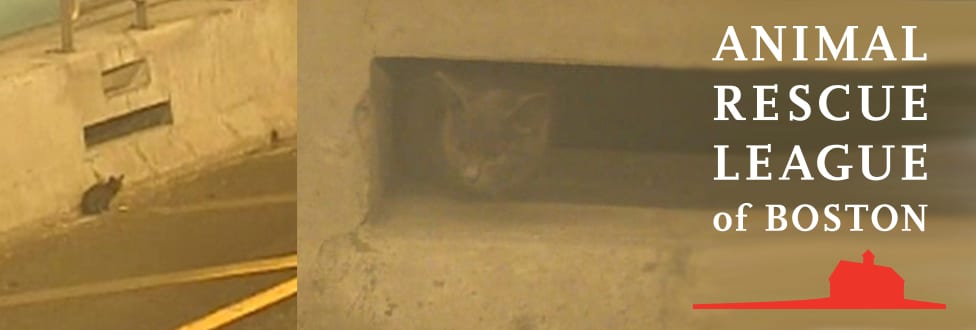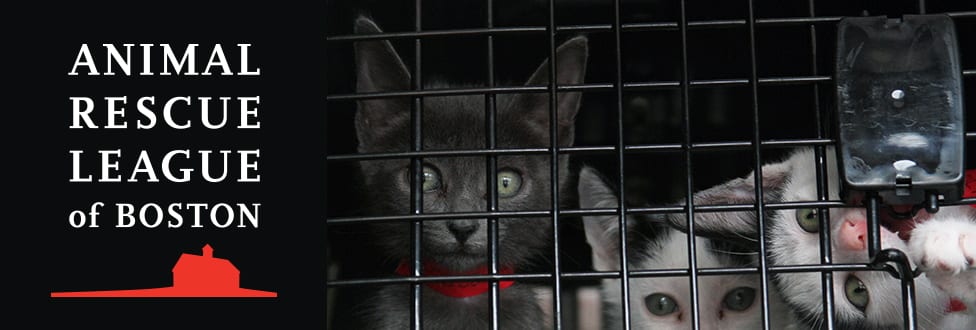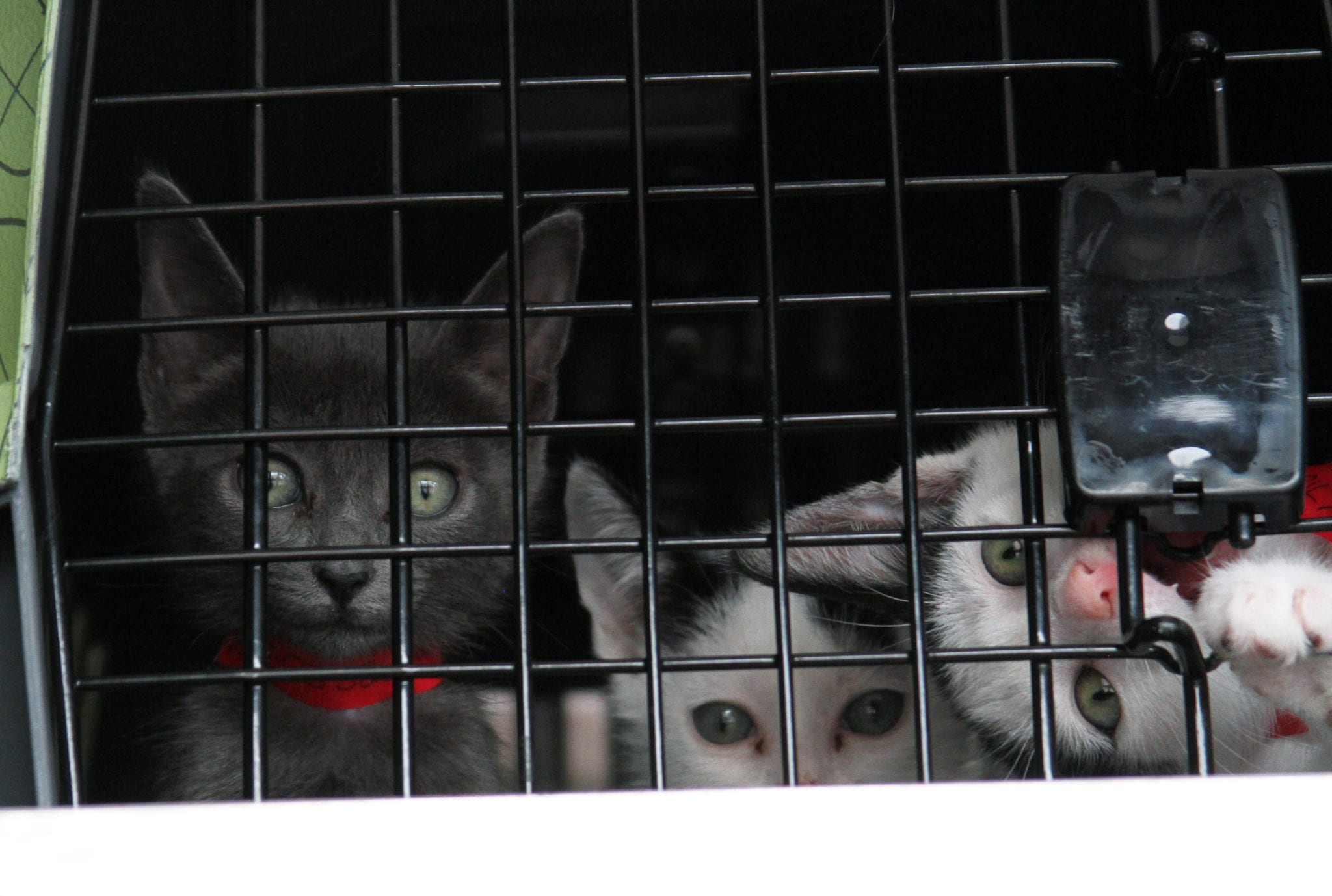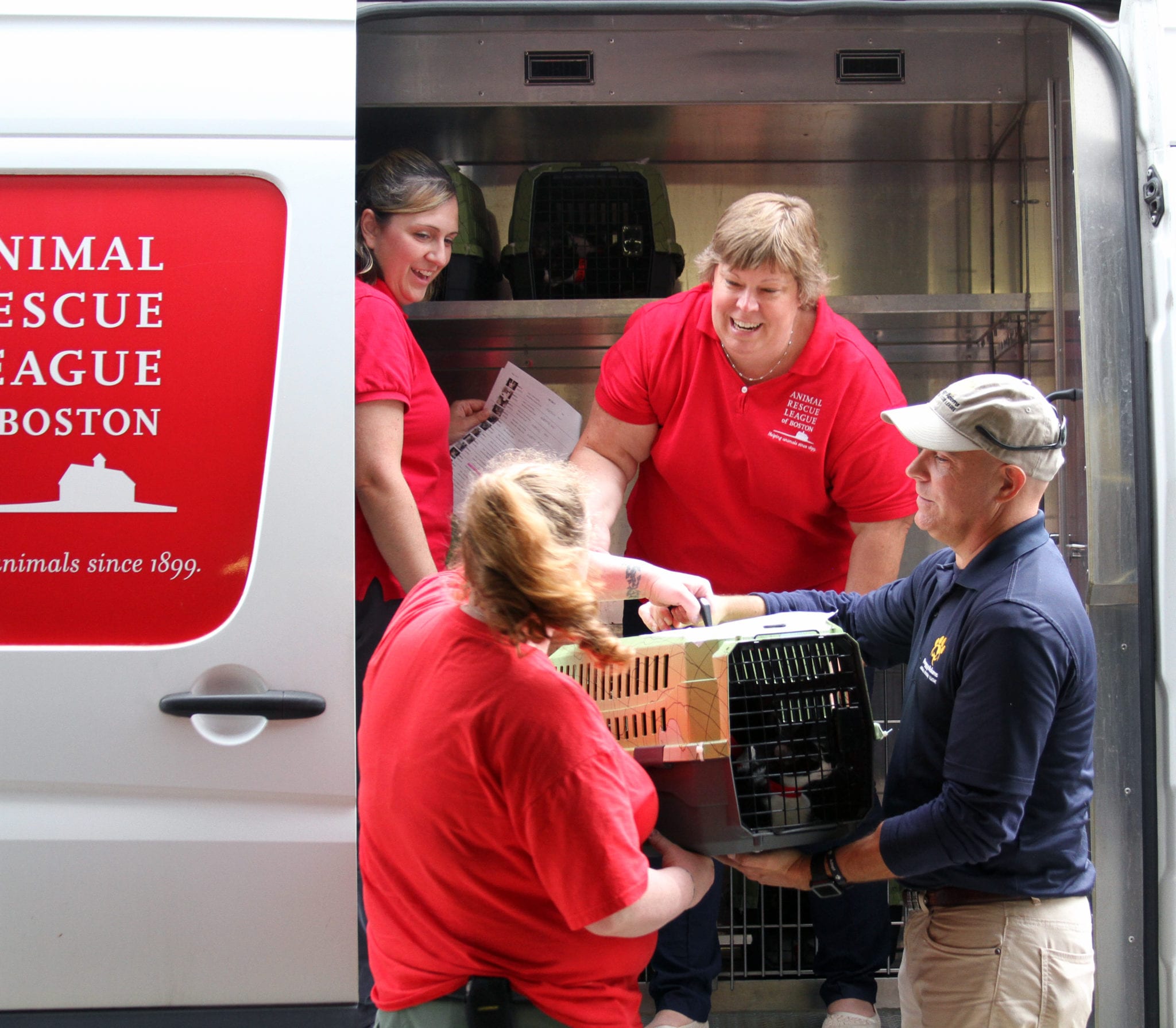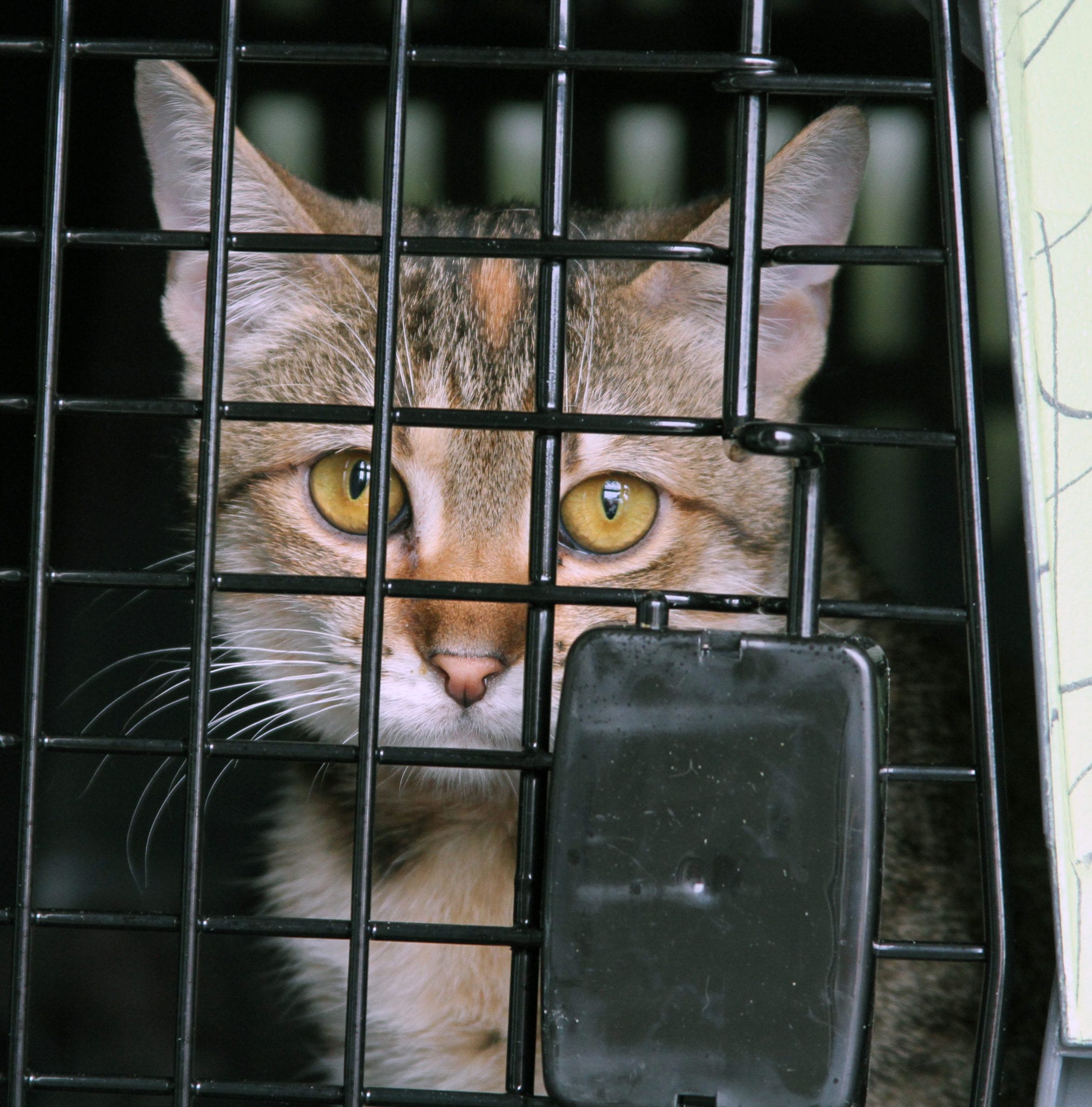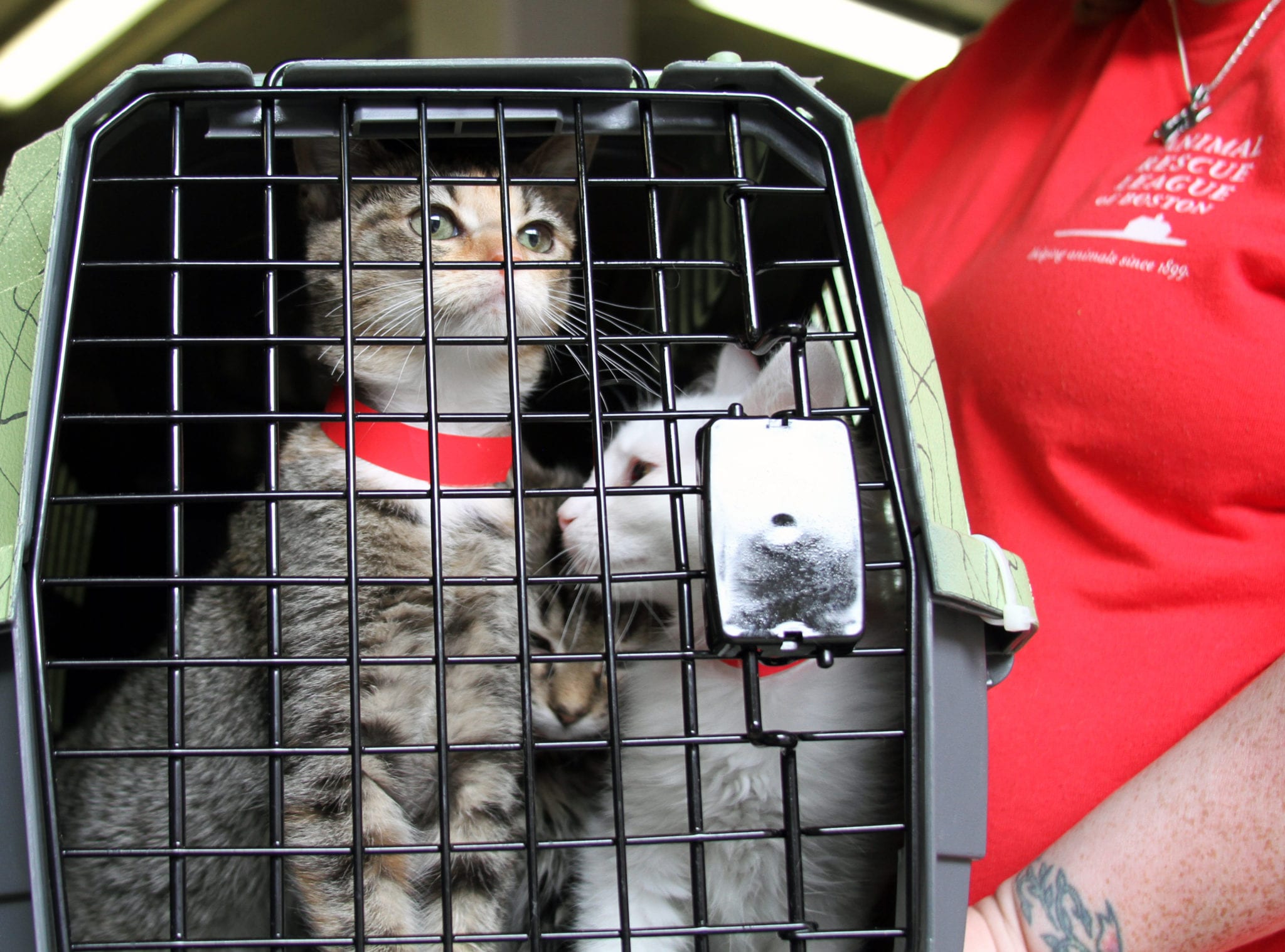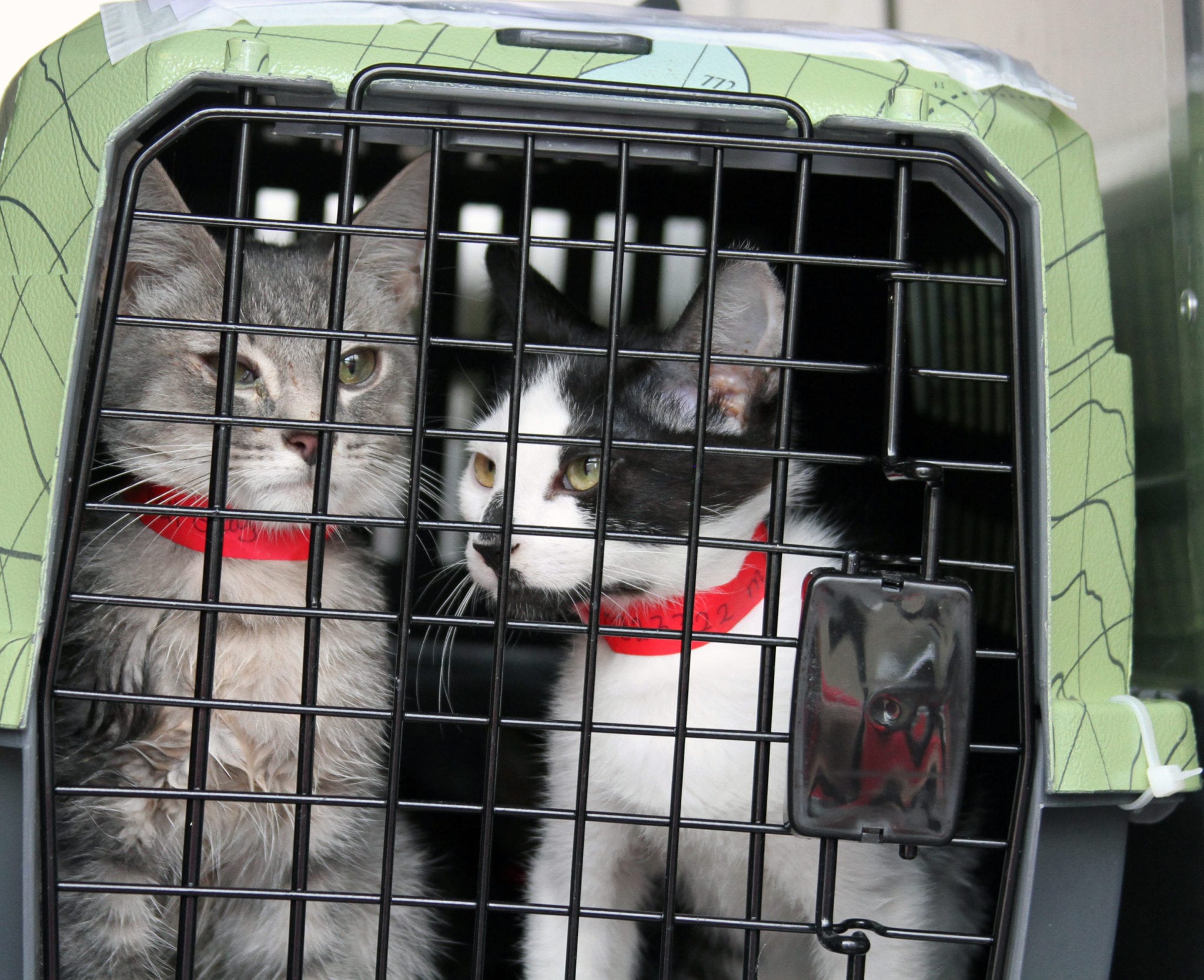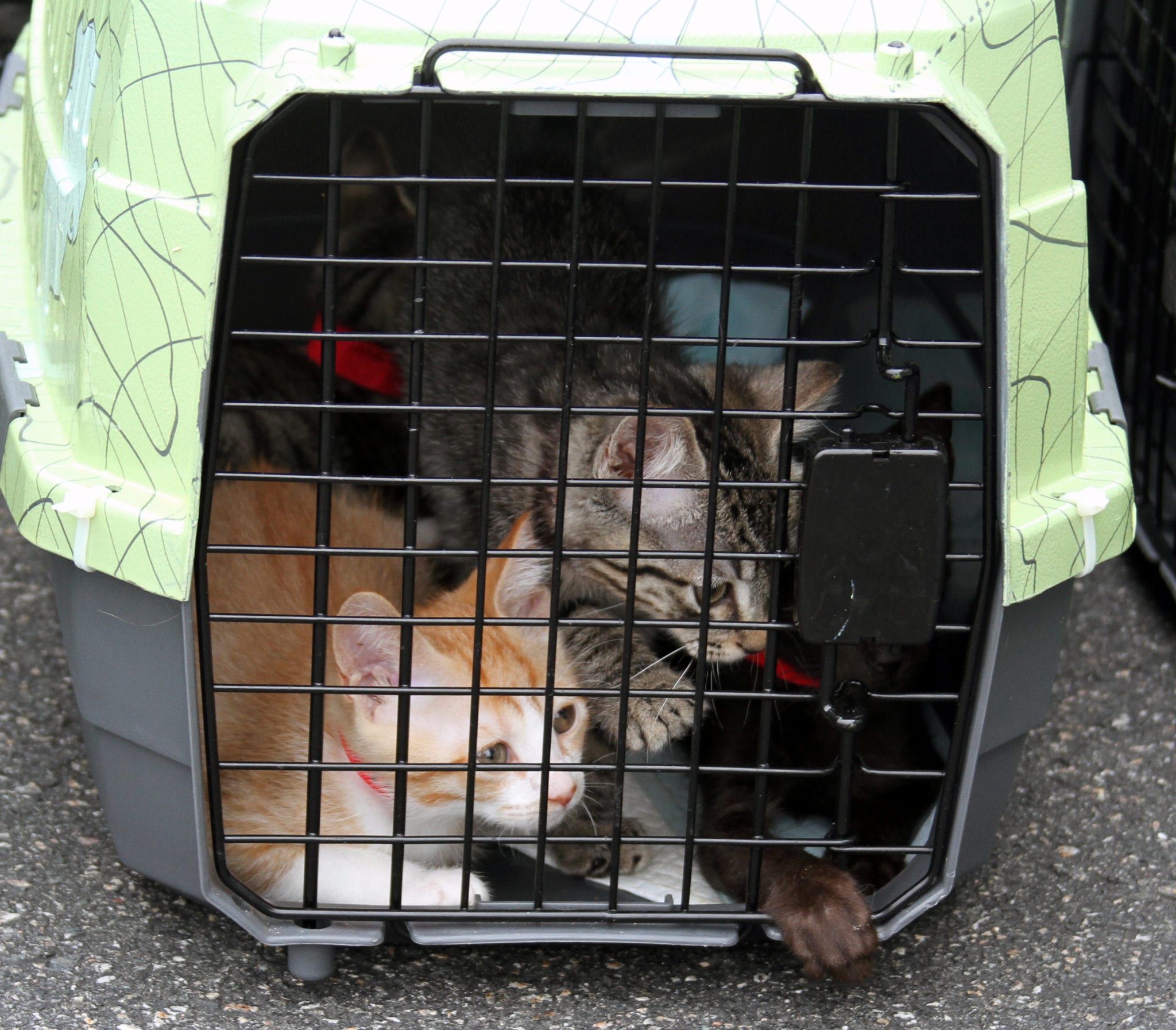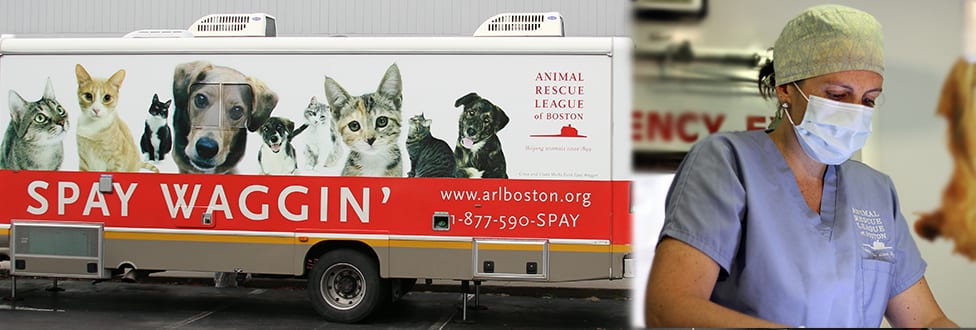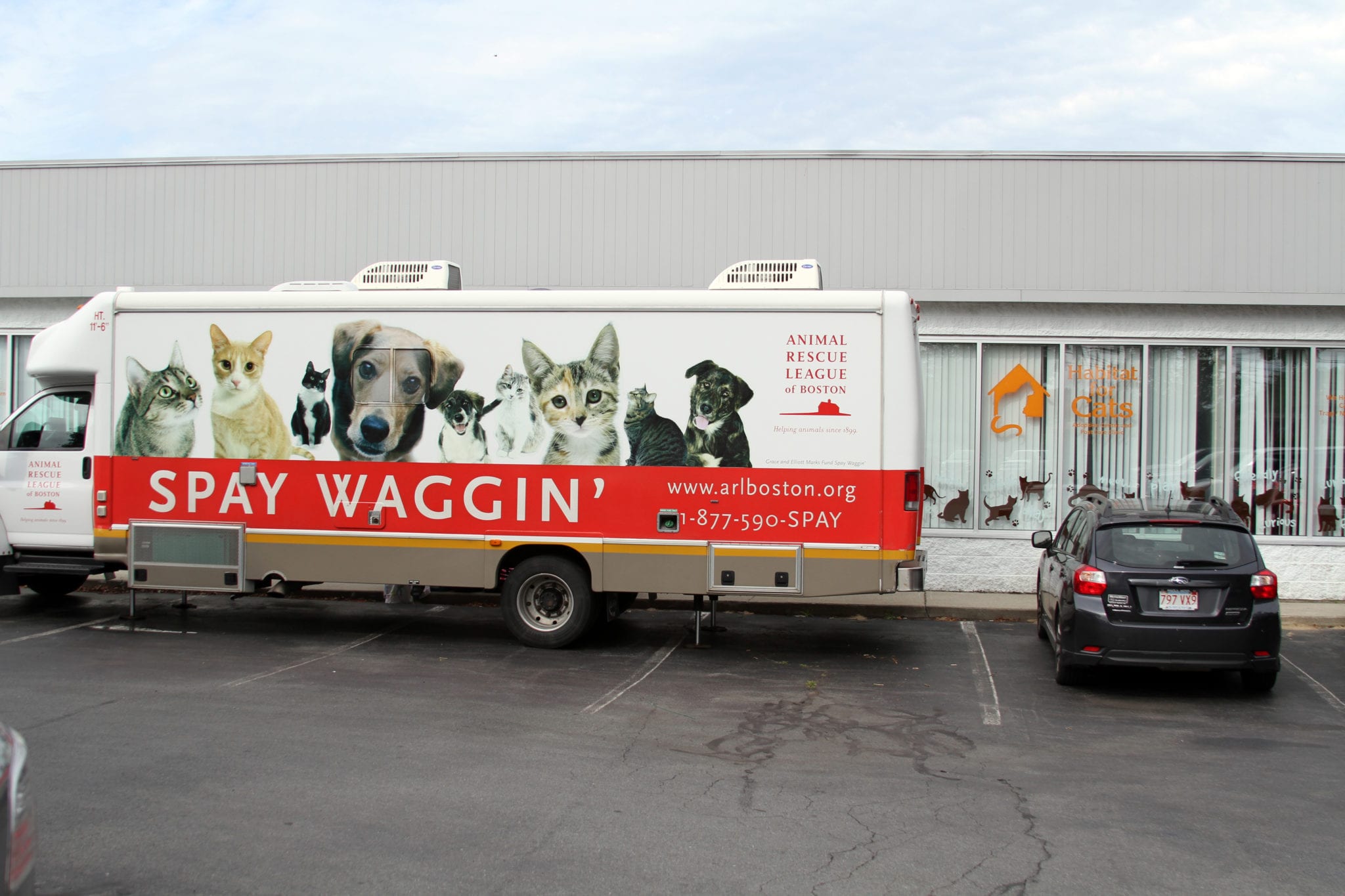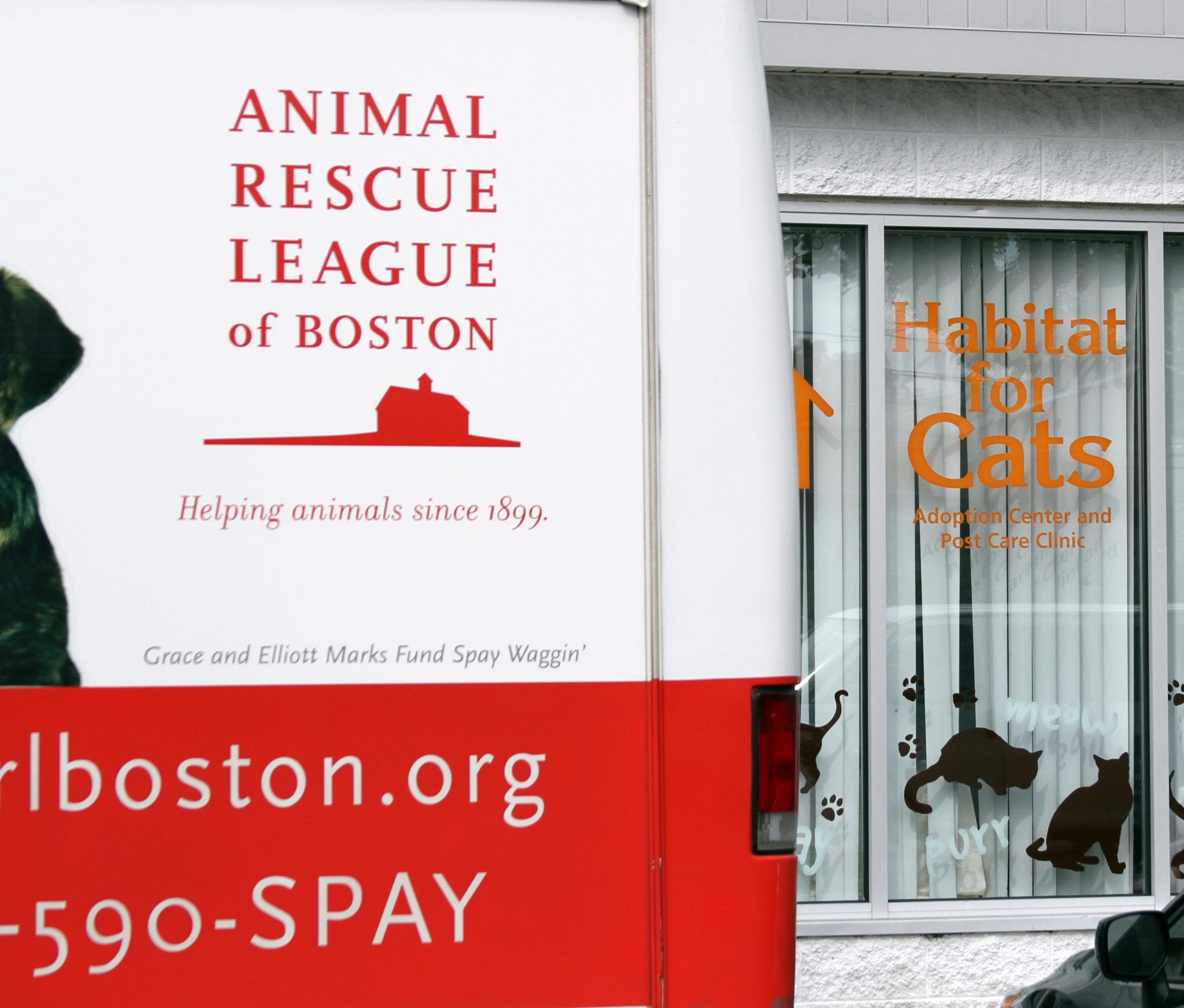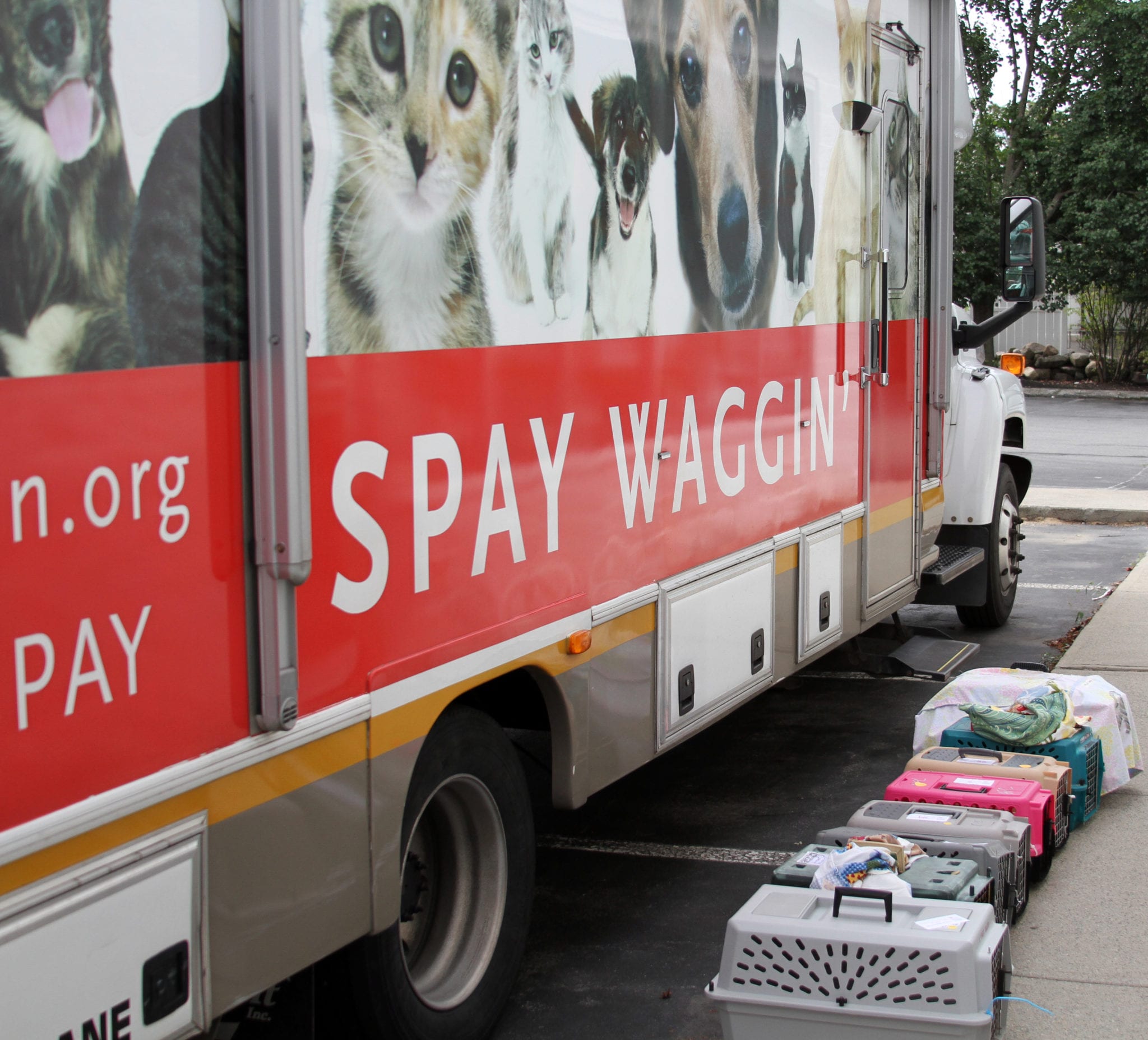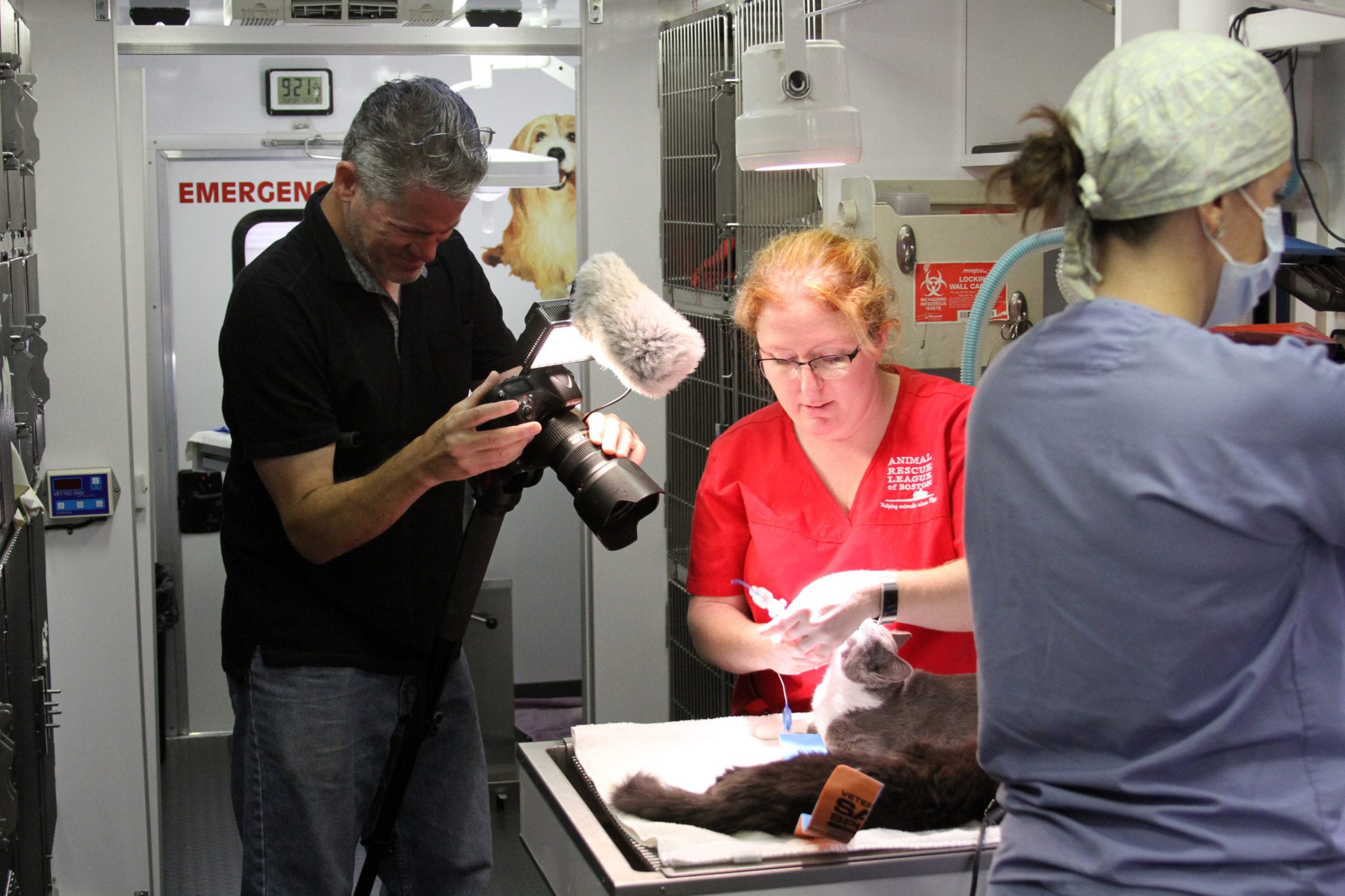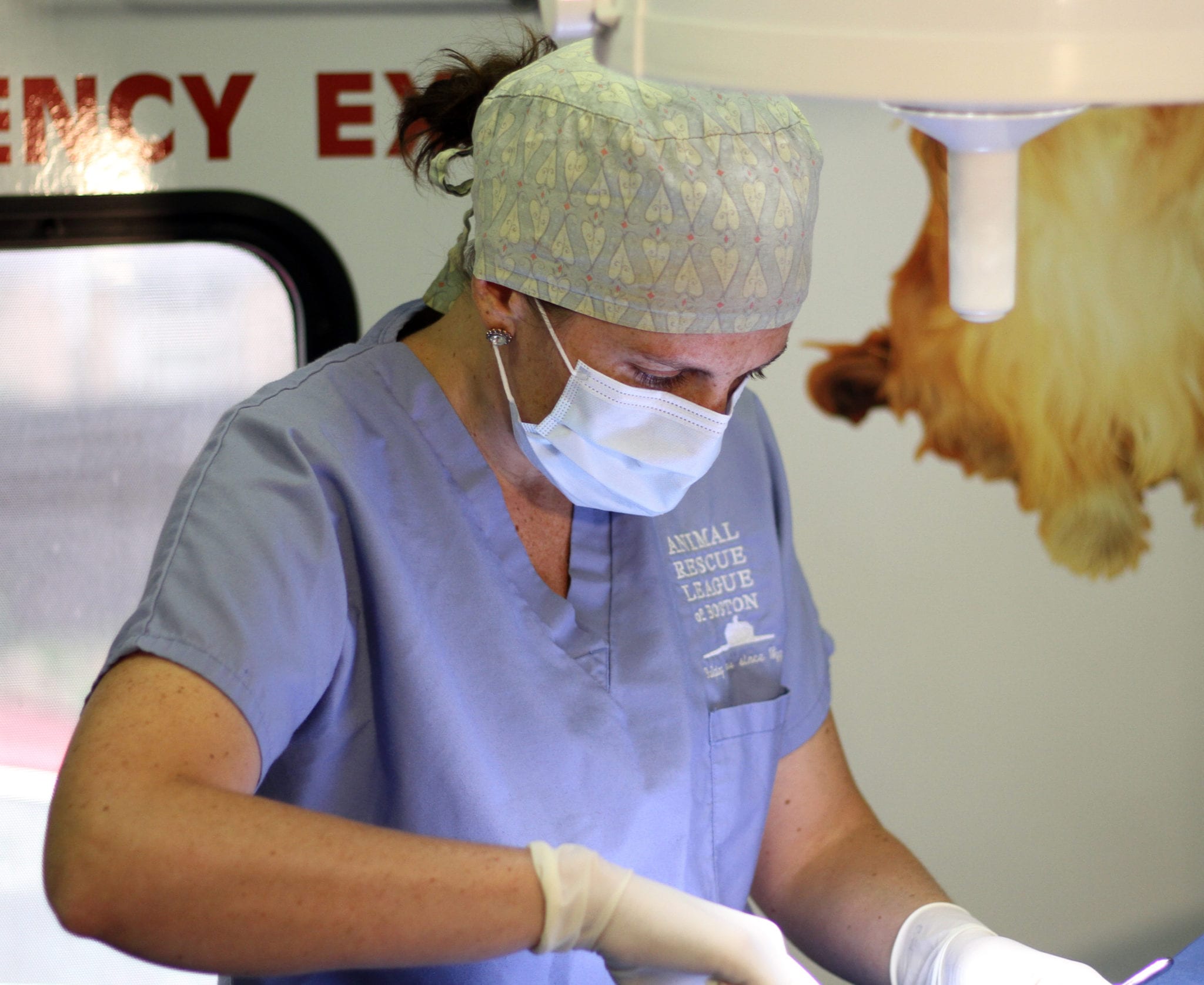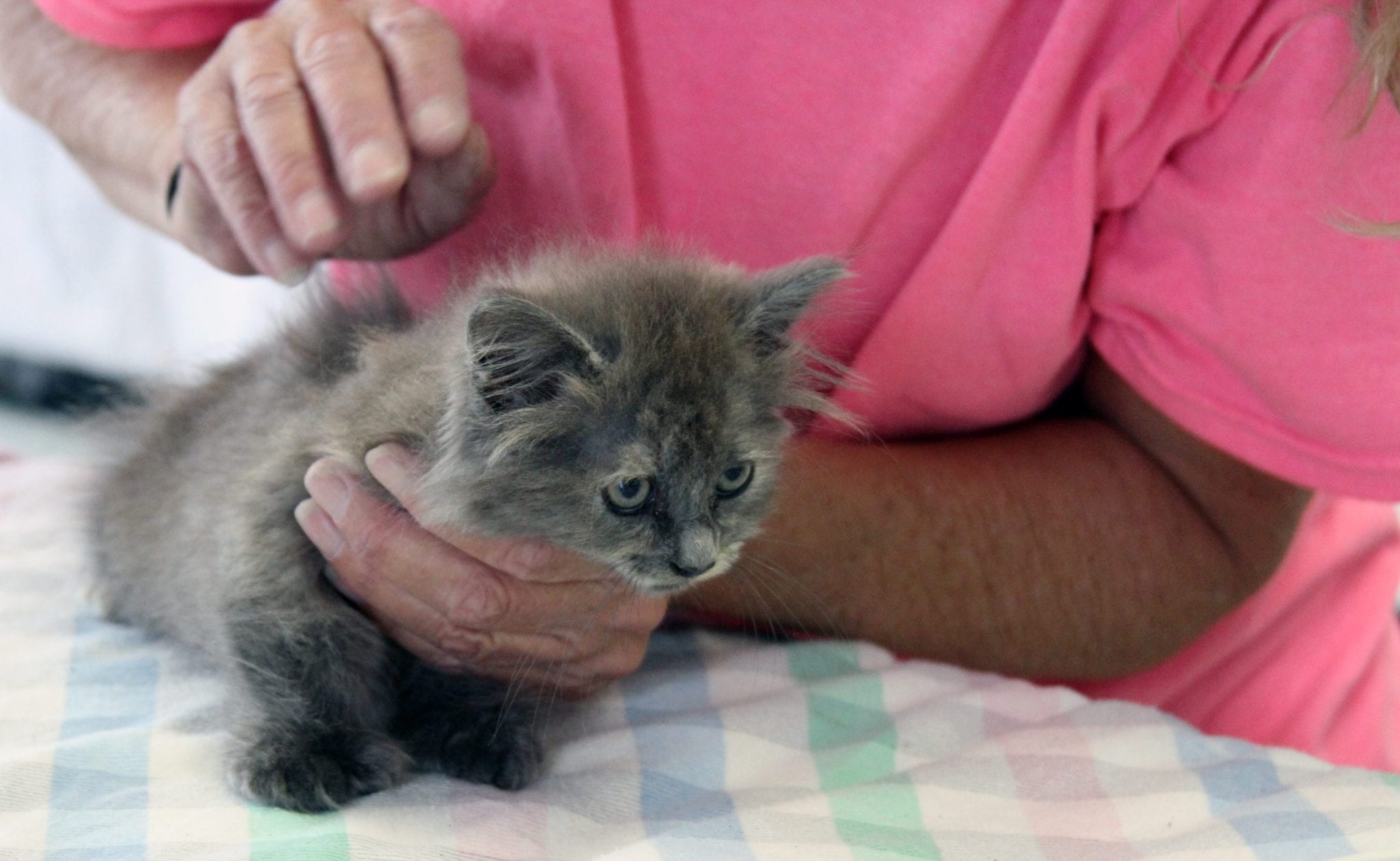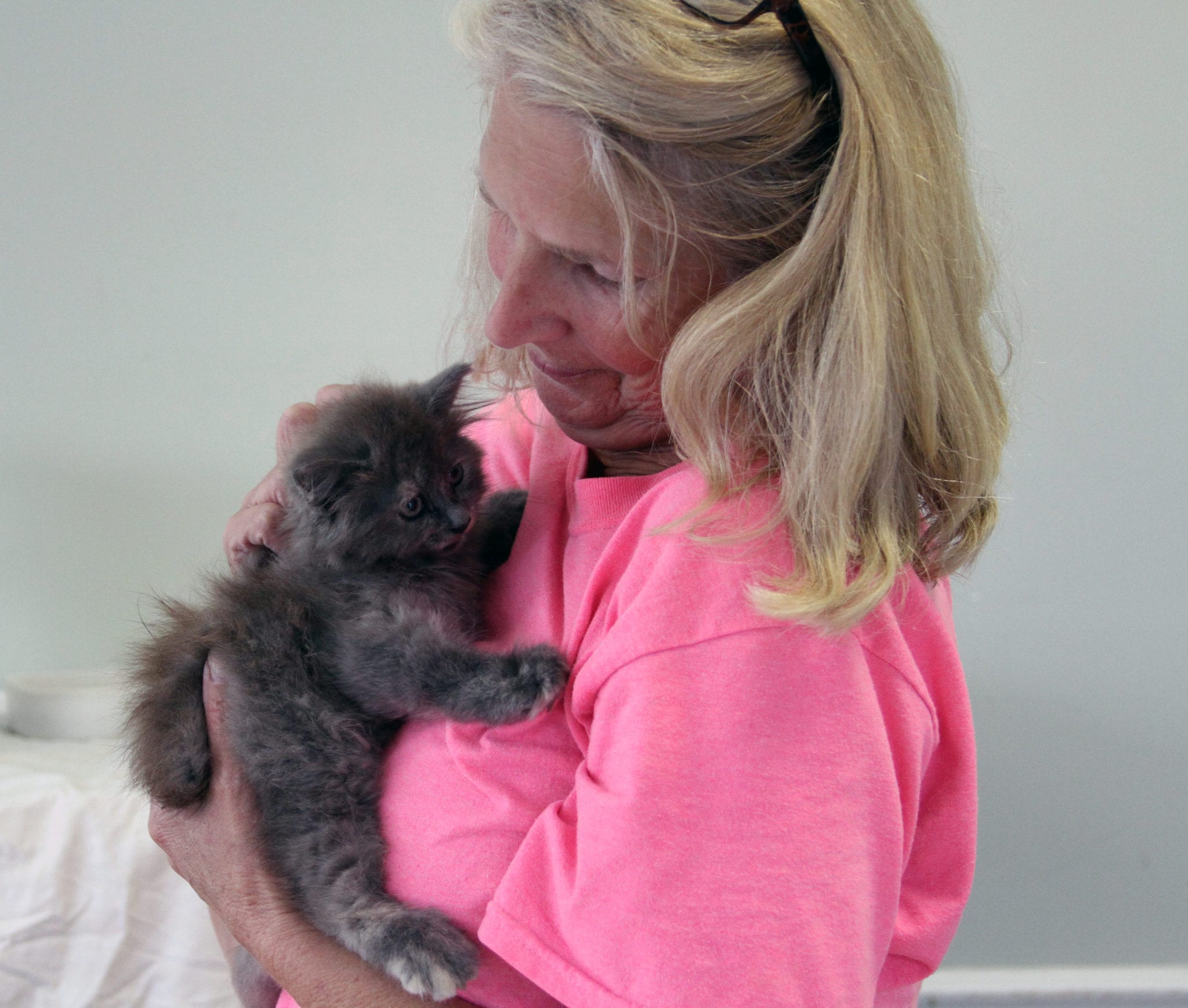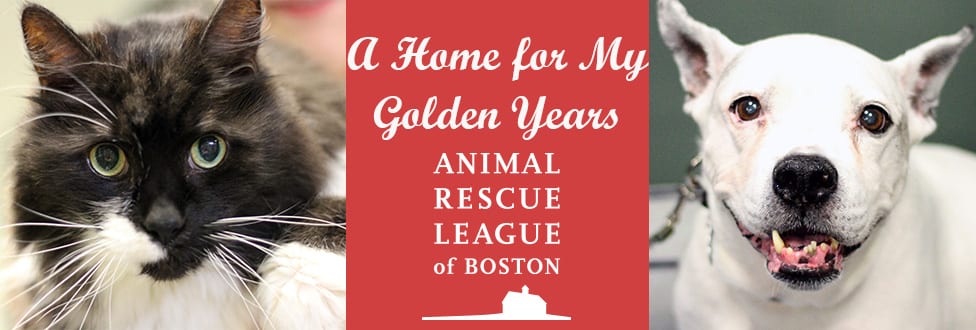How Maybelle the Pot-Bellied Pig Got Her Groove Back
A Much-Anticipated Weigh-In
You may remember Maybelle. The obese one-year-old pot-bellied pig has been in the care of the Animal Rescue League of Boston (ARL) since May and the main goal for her rehabilitation has been simple — to lose weight. Maybelle has made tremendous progress during the summer months, and this week ARL staff decided it was time to get her on a scale to really see how much weight she has lost.
Maybelle came to ARL weighing 196 pounds, but is now down to about 175!
Twenty pounds may not seem like a lot, but for Maybelle’s overall status, losing 20 pounds has been transformative.
Strutting Her Stuff
Pigs are highly intelligent animals, and when Maybelle arrived at ARL’s Dedham Animal Care and Adoption Center, she was very depressed. Her depression stemmed from not only her obesity, but her lack of mobility and extreme discomfort. However over the last few months, and particularly in the past few weeks, we have seen a remarkable change.
Maybelle has made ARL’s iconic Dedham barn into her own personal walking track. She’s moving freely and on the day she was weighed, she put on quite a show for staff, volunteers, and media members in attendance. While showing off her mobility, she was playful, happy, and interactive, which is a great sign moving forward. Click here to see video of Maybelle strutting her stuff!
While continuing her weight-loss program, Maybelle is currently up for adoption, however any potential adopter would have to be able to provide a sufficient environment to house a pig, and be committed to her continued rehabilitation.
Long-Term Commitment
Despite the weight-loss, Maybelle still has a ways to go. She should weigh somewhere between 120-130 pounds, so her diet of six small meals a day will continue, and ARL staff and volunteers will give this famous pig all the support and encouragement she needs until the goal is reached. ARL’s veterinary team estimated that Maybelle’s weight-loss will take nine months to a year to complete, so stay tuned for updates on her progress!
